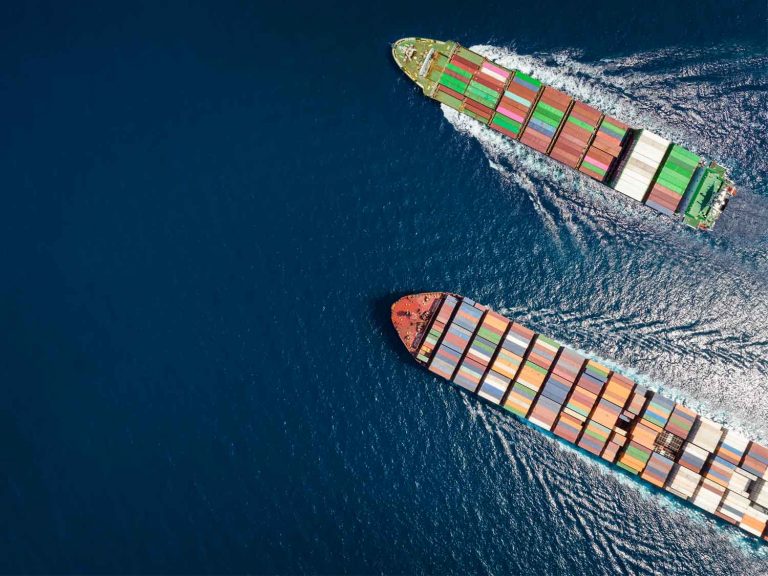
Date:
2M split by MSC and Maersk to transform shipping from Asia
The planned 2025 split of the 2M alliance, after ten years, by the world’s largest and second-largest container shipping lines – MSC and Maersk – has been looking increasingly likely, as Maersk pursues its integrated strategy and MSC’s expansion has given them the scale to effectively offer a global network without any alliance partners.
In a joint statement on 25th January, MSC and Maersk said that the two companies had mutually agreed to discontinue the 2M vessel sharing agreement (VSA), which coordinates many of the two carriers’ primary east- west services.
Portents for the end of the 2M partnership had been growing, particularly as pandemic driven demand accelerated MSC’s expansion strategy, with almost 250 second-hand container ships and 1.75m teu in new tonnage bought since August 2020.
The announcement by 2M is likely to be the beginning of a re-shaping of the alliances and vessel sharing agreements and most particularly on the major east-west, transpacific and transatlantic trades. It could trigger a complete overhaul of the carrier alliances, as shipping lines in OCEAN and THEA alliances reconsider their strategic options.
There will be changes in the competitive dynamics on all the major trade-lanes, which will have implications for all the shipping lines, and they will need to carefully evaluate the new threats and opportunities they face over the next 1-2 years.
Even if 2M formally runs until January 2025 it should be expected that Maersk’s and MSC’s networks will begin to deviate even more in 2023 and 2024, as they evolve through different VSA and slot-charter agreements.
One thing is however almost certain: MSC is poised to go it alone from 2025, as the only independent large-scale container shipping line that is working outside of any alliance.
The 2M partners currently control 33.7% of the global container fleet, with MSC deploying 25% of its fleet capacity in the 2M setup and Maersk deploying 39%. Both carriers operate the remainder of their fleets on independent services or within other regional cooperations.
Since the launch of 2M, both MSC and Maersk have grown massively, with MSC’s fleet almost doubling from 2.54 Mteu in January 2015, while Maersk stood at 2.89 Mteu, almost three years before the takeover of Hamburg Sud.
Maersk has been very cautious with its fleet expansion. It has refrained from ordering any megamax ships, shying away from the flagships of 20 to 24,000 teu ships, that are now common, in favour of environmentally-friendly ships with 18 x 16-17,000 teu vessels due for delivery in 2024 and 2025.
These ships will feature Methanol propulsion and Maersk intends to run the vessels in carbon-neutral mode as soon as possible, which will give it a unique ‘ECO’ position in the industry.
Maersk may not have the scale to go it alone, but its carbon-free product needs exclusivity and they are unlikely to want to share capacity on these ‘special’ ships with rival carriers.
The strategic choice for Maersk is to carry on alone, join an existing carrier alliance, or lure shipping lines away from their current alliance to create a new one, which would create a new alliance landscape.
One of the underlying reasons for MSC’s independent strategy may be the increasing scrutiny that the carrier alliances are coming under, and particularly in light of the vociferous shippers anti-competitive complaints during the pandemic and exempting liner shipping from anti-trust rules in the USA and EU.
The breakup of the 2M shipping alliance is going to be the start of a total re-shaping of the alliances and vessel sharing agreements globally and especially on the major east-west trades.
Shipping alliances, VSA’s and new service launches, over the next two years, will alter competitive dynamics on all the major trade-lanes, which is why we will stay close to our industry partners and contacts, to identify opportunities for our customers, strengthen existing carrier relationships, build new ones and help shape whatever finally replaces today’s three alliances.
If you have any questions or concerns about the developments outlined here, please EMAIL our Chief Commercial Officer, Andy Smith, for the latest insights and intelligence.
